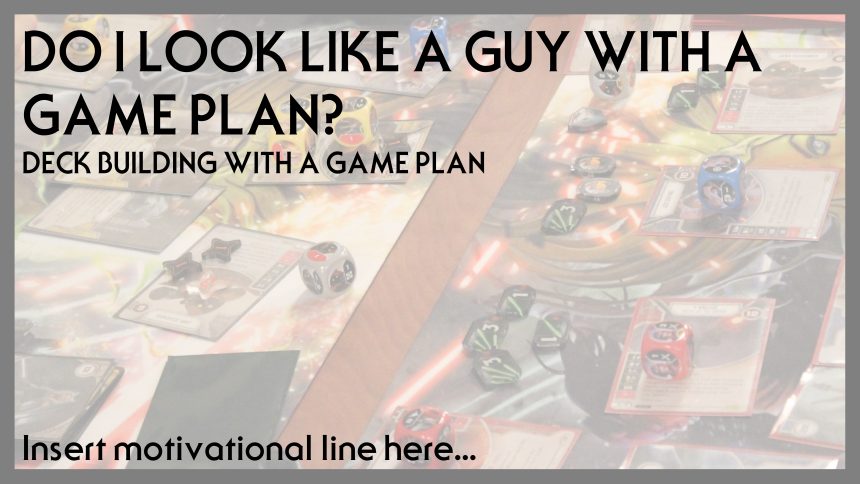Do You Like #Winning?
You sit down at your assigned table in the convention hall, nerves keeping you on edge. You open up your bag, take out your deck, and wait anxiously for your opponent to reveal their character pairing. When they flip over R2D2 (SH56), C3P0 (SH77), and Satine (CV91), you know it’s going to be a tough match. The question is this: is it a winnable one?
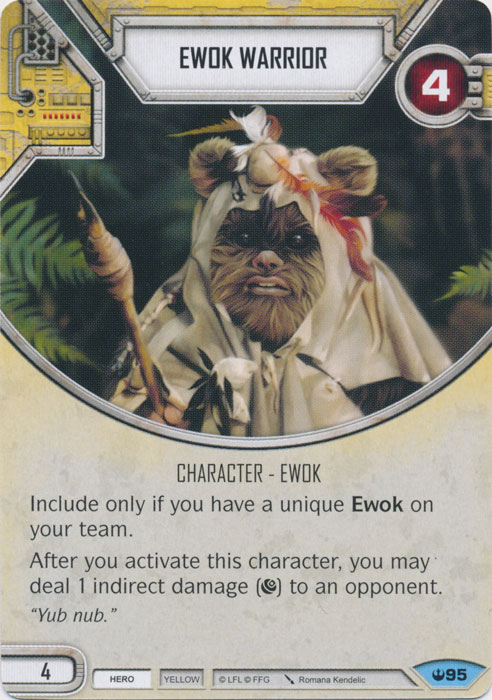
Winning requires that you have a game plan for common match-ups before you sit down at the table. When you see Hero droids, you should already know which character you will be targeting first and how you’ll mulligan. This article will guide you through the process of creating offensive and defensive game plans. It will also use an American football analogy, tell you about a time I lost a game, and make at least one subtle Harry Potter reference.
Offensive Game Plans and Threats
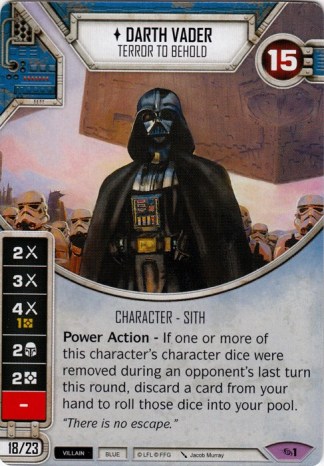
In football, the offensive gameplan revolves around scoring points and outsmarting the other team’s defensive gameplan. In Star Wars: Destiny, your “offensive game plan” (OGP) is similar. All decks, regardless of style and construction, are built to somehow win the game. If you are playing Ewoks, your OGP is to do as much indirect damage as possible for as long as possible. Yoda/ Leia (LG33/WF73) mill has an OGP to discard as many cards from hand and deck as possible. Darth Vader (AG1) has an OGP to resolve dice for as much damage as possible every round (and play some cards to help do it, like Darth Vader’s Lightsaber (AG16)). Every football team needs to score points to win. Every Star Wars: Destiny deck needs to do something to win as well.
The core of any Star Wars: Destiny deck is the set of threats that you will be using to defeat your opponent. Any deck worth playing at a major event will have a strong OGP (made up of effective threats) that players can utilize in a match. If you are “netdecking” a popular build, it is absolutely critical that you identify and understand a deck’s threats and OGP. What does a deck do to win? How does it do it? What can your opponent do to stop it? These answers can change during a game, especially if your opponent manipulates your OGP somehow. Flexibility in carrying out your OGP is a key part of success, and adaptability is the mark of a seasoned player. Given all of this, it’s enormously helpful to have a basic strategy ready before a tournament begins.
Never Stop Learning! Practice Makes Perfect! (Insert Motivational Line Here)!
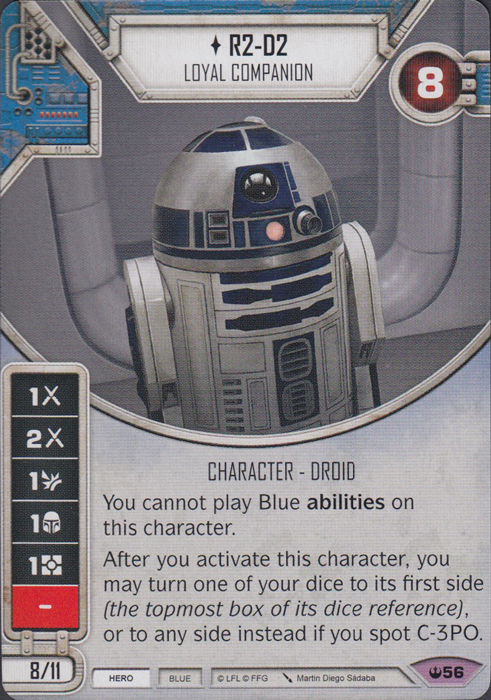
It is worth mentioning that understanding the OGP of other decks will go a long way toward making you a better Destiny player. Watch game-play videos of popular decks, and look for the plays that push players to wins. How do the best players carry out their game plans? Practice against your friends, both playing and playing against decks that are popular in the meta. Sort through decklists online, and try to figure out how different decks work. This is not unlike football coaches and players watching film on an opponent. You should know ahead of time what strategies you might face in a game, so you can more effectively counter them when you do. This will also help you identify if you should be the beatdown in a match or not.
Defensive Game Plans and Answers
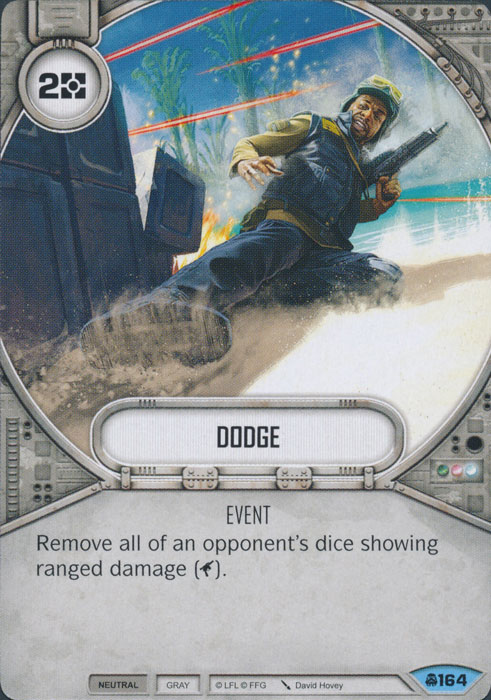
Continuing with my football analogy, the defensive game plan (DGP) revolves around keeping your opponent from scoring points (and around outsmarting their offensive game plan). In Destiny, your deck construction will help you do this. Running the right removal for your meta is key. In the right meta, Dodge (CV164) is an excellent, high impact card. It also does exactly nothing in a tournament if the decks you face aren’t trying to win with ranged damage. Before you play in a major event, critically assess the removal your deck is running. Will a piece of removal help stop popular strategies? Is it worth the resources? Is there another card that fits the meta better? A good defensive game plan will evolve throughout a game, but it starts with a solid deck-list.
Understanding the OGP and DGP of popular meta decks is critical to developing and carrying out your own plans. If you have experience piloting popular builds (or at least have seen streams of them), you will better know how to counter them. One of the hardest parts of crafting an effective DGP for a matchup is learning not to chase ghosts. Don’t be so afraid of taking damage that you waste removal on dice that aren’t critical to your opponent’s OGP. Don’t play narrow answers in your deck if the meta is unlikely to give you those decks to face in a tournament. If you learn how decks win and which decks are winning, you will also learn how to stop them from doing so. Good DGPs answer your opponents’ threats and complement your OGP, rather than hinder it.
Keep Calm and Stay Flexible
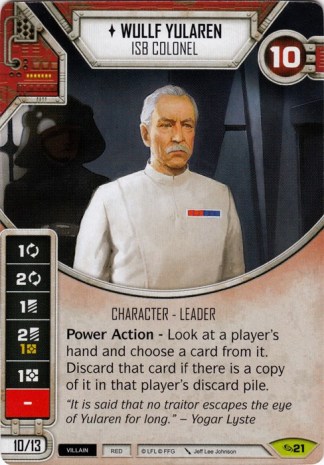
In a major event, when the pressure is on, you will need to have a gameplan ready to go quickly. In a single elimination format, you don’t get a second chance at an opponent and you don’t have an opportunity to side in cards from a side deck. You should (ideally) be prepared for popular decks ahead of time, so your mulligan and overall strategy will be straightforward. Preparedness eases your nerves and gives you confidence in tough spots. Your OGP should be effective and your DGP should be ready to counter your opponent.
That said, sometimes it’s not possible to be prepared ahead of time. Your opponent could be playing a home-brewed deck that you haven’t seen before, or they could be playing a deck you haven’t had time to practice against. If this happens, be prepared to be flexible. If you get your early strategy wrong, or if your opponent does something unexpected, you can still adjust and come back to pull off a win. Remember, the Patriots were losing 28-3 before they won Super Bowl LI! In game adjustments are totally possible and often necessary. Failure to recognize the need to shift your strategy is an easy ticket to a round loss (or a 34-28 Super Bowl loss).
I Lost My Toledo War (MIKE STINKS badges available upon request)
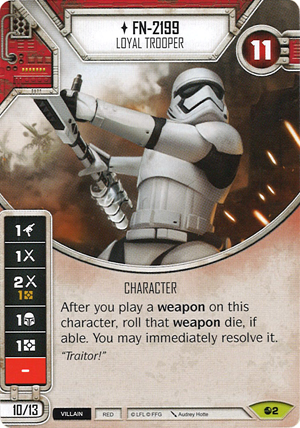
I’m going to give you an example of a time I really messed this up and lost a high stakes game. The setting was two years ago, at the Michigan Regional. It was Thanksgiving weekend, and my friends and I drove from Ohio to Michigan on Black Friday. Incidentally, it was also Ohio State vs. Michigan football weekend, and it was cool that we were going to have our big games alongside that one. The late fall weather was brisk, but our group was excited and ready to play some Star Wars: Destiny.
Anyway, back to the game I lost. The tournament was going into round four of a seven round event, and my opponent and I were both 3-0. This was back when Qui-Gon/ Kanan (AW37/EW33) decks were a big part of the meta. My opponent and I had both made the meta call to run Kylo Ren (TP01) in a field with a lot of mono decks. I decided to partner my Kylo with single die FN-2199 (SR02), and my opponent chose to pair his with single die Darth Vader (SR10).
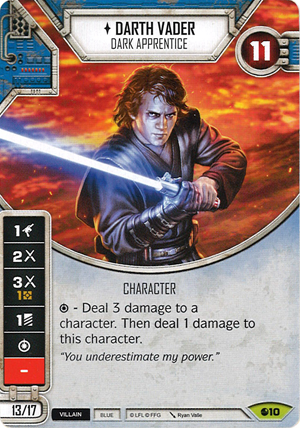
Two-color Kylo probably had the advantage in this match-up, and I decided to play aggressively to take advantage of that. I hit his Vader for a single damage off of something, I think a Vibroknife (SR57) on FN-2199, on my first action. On his next action he played a Sith Holocron (AW16) on Kylo Ren. If I had been thinking flexibly, I would have immediately changed my game plans to counter his and switched targets to Kylo. I wasn’t very far at all into Vader, and playing that Holocron was a confident drop that I should have adjusted to. I didn’t, and I ended up losing to a quality player. My opponent in that game actually went on to win the whole event! I bubbled out of top cut at 5-2.
Keep Pushing That Boulder!
It’s really hard to win an event. I don’t care if it’s a local event or Worlds, winning games of Star Wars: Destiny against quality competition is never going to be easy. There are some things you can do to make the challenge a little less Sisyphean, though. Having a game plan for popular decks is one of those things. Once you’ve practiced developing game plans (and identifying your opponents’), your ability to defeat any deck, even those you’ve never seen before, will dramatically improve. I’m still a work-in-progress as a player, and this is something I continue to strive to improve at. I hope it was helpful for you as well. Until next time!
Support The Chance Cube
Do you enjoy the content provided by The Chance Cube? Would you like to connect even further with The Chance Cube Family? Consider supporting this content by joining our Patreon. We are a team dedicated to media coverage and community building, committed to bringing you the best of this game, sharing the joy and community that comes with it. Our Patreons enjoy membership in The Chance Cube Hangout, our Facebook group for supporters of the channel, and we have additional tiers that include gifts from us to you as a thanks for the generous support. Find out more at patreon.com/thechancecube.
